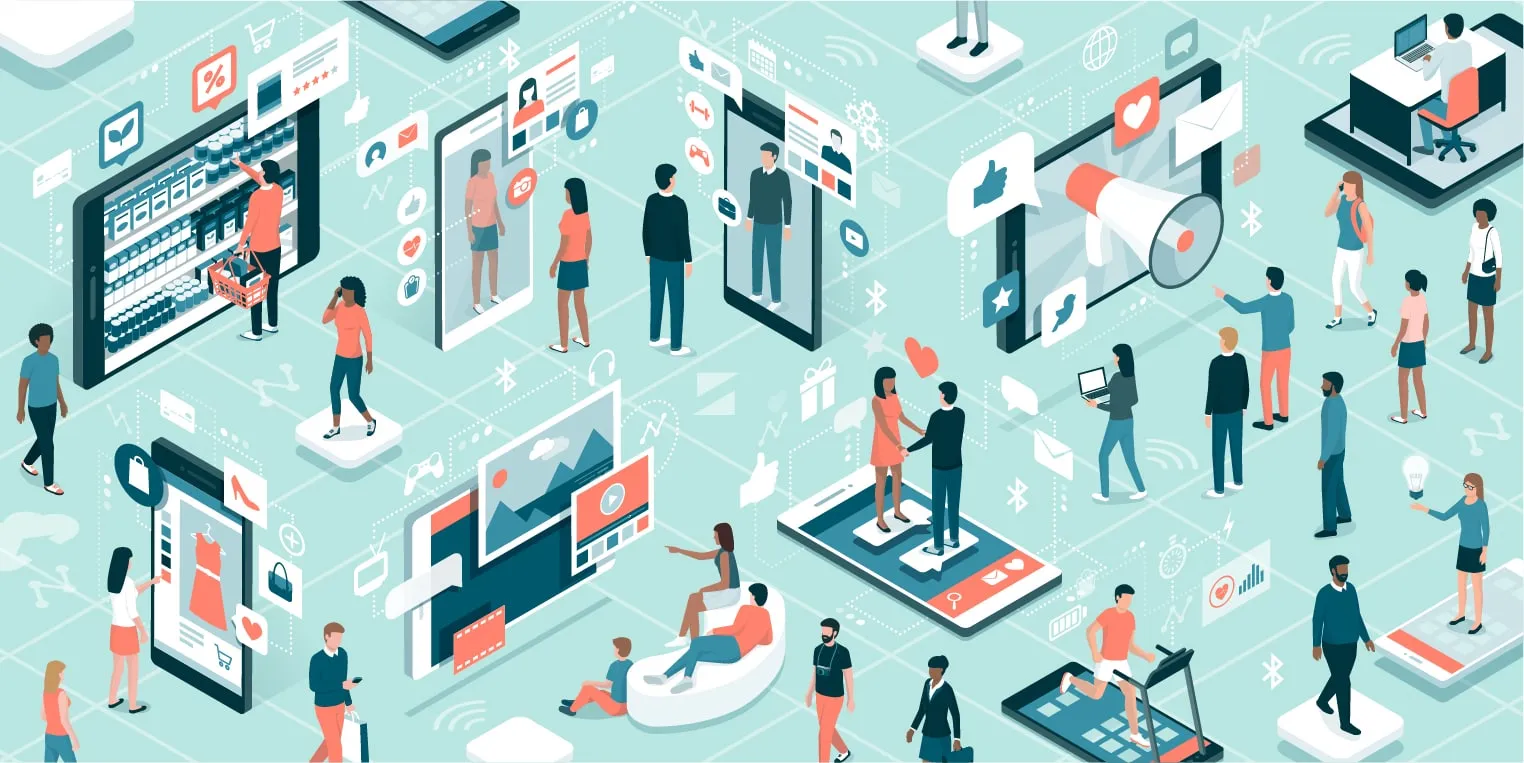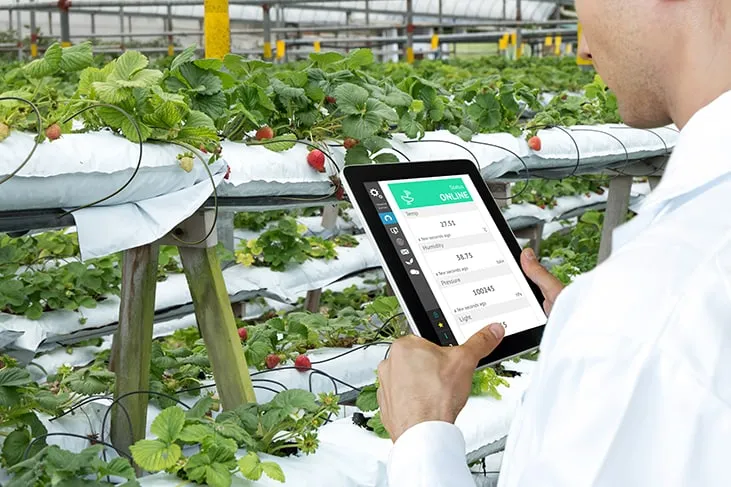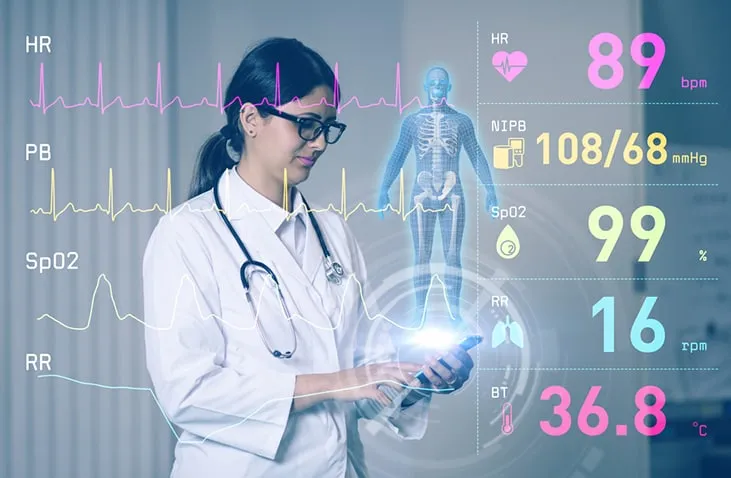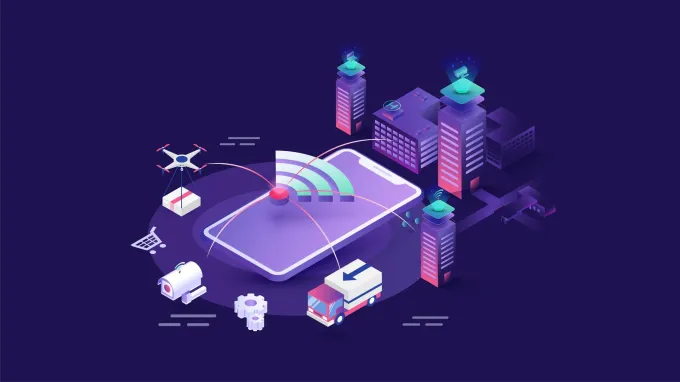AI solutions
What we do
Services
Experts in
How we work
Internet of things (IoT) is becoming more important in our everyday lives as well as in industrial operations.
The benefits of implementing IoT in healthcare, manufacturing, retail, etc. are impressive. 94% of businesses have already confirmed returns on their IoT investment, regardless of the industry.
Let’s review the most effective implementations of IoT in business – those that move industries forward and help businesses dramatically increase their income!
IoT is causing another industrial revolution. The reason is simple: tiny devices connected to internet increase productivity, minimize unexpected expenses, and influence working security.
A factory where most of equipment is connected has extraordinary performance compared to classical ones. Remote management, processes automation, and optimization give significant results. Efficiency of these factories further grows the implementation of inventory management systems.
A company where most processes are automated and rely on custom software doesn’t suffer from human error. Further, some routine work can be entrusted to machines, which can work round the clock. This offers higher working productivity paired with lower expenses.
Factories invest impressive amounts of money in equipment repair and maintenance. In addition, every break pauses manufacturing, which is again a significant loss of money. This may even result in plant worker injuries. However, connected sensors can continuously measure equipment performance to detect any changes before a breakdown. If a defect in the tool is detected, the system can automatically schedule maintenance to fix it before it becomes a problem.
Modern security systems do more than just allow you to observe the situation from different offices or in storage. Using artificial intelligence, smart cameras can recognize faces and alert you if a stranger entered the room with limited access. Sensors with noise or movement recognition help prevent robbery and improve the overall safety of the manufacturing facility.

Connecting manufacturers with retailers, logistics provides many possibilities for improving safety and reliability. IoT in business already makes this possible.
Tracking your orders is especially valuable in case of international, or even transcontinental delivery. Small sensors can send signals about actual location of the goods and estimate the arrival time. They can also report on delivery condition (temperature, humidity, vibration level, etc.) which is especially beneficial when handling perishable goods.
Sensors can also control vehicle mileage defining whether the driver adhered to the predefined route. This feature, together with fuel expense control, can help reveal unreliable drivers that use the vehicles for their own purposes.

Internet of things doesn’t just help produce and deliver goods but is also a perfect assistant for selling them.
Selling perishable goods is a big risk because of the need to exactly adhere to the necessary storage conditions. Smart sensors can handle this task. They can constantly measure temperature, humidity, and other important indicators adjusting them to achieve the most suitable conditions for products to be sold.
Beacons are tiny devices that use low-energy Bluetooth to send push notifications to smartphones that appear within a certain radius. They help attract visitors that pass by a store with timely offers or discounts, send actual information about product prices, and display any other information that could stimulate occasional visitors to make a purchase.
Cameras and other sensors empowered with image recognition can help you gather essential information about your visitors, their behavior, and their preferences. This data can be used to focus your sales and marketing efforts on achieving more.

Internet of things has allowed agriculture to make a huge step ahead.
Greenhouse environments are usually controlled manually. However, modern technologies allow you to trust this to a software. Sensors measure the climate inside the greenhouse and can adjust it according to the requirements of the growing plants. Manual intervention is eliminated, saving time and money.
Drones are used to monitor crop growth, analyze soil, and spray plants. Observation of large areas helps you discover any crop diseases in their early stages and effectively fight them. This minifies danger to harvest.
IoT devices help track the location and well-being of cattle. Monitoring animal health is now easier and more reliable. For example, sensors can be used to observe animal pregnancies acting quickly when something goes wrong.

Implementation of IoT in healthcare definitely deserves to be separated from other industries. IoMT helps save lives, cure diseases, monitor health rates and improve quality of life.
Connected devices are able to track various health data, such as blood pressure, blood sugar levels, ECG, etc. and warn the patient about possible danger. Further, these devices use the internet to send actual data to the doctor. With IoMT, patients don’t have to visit their doctor personally - all the necessary symptom information can be shared via the network.
IoT devices can also help cure diseases. A small device, for example, can monitor current blood sugar levels and adjust the amount of insulin the pump delivers. This helps improve the quality of life for patients with diabetes.
IoT devices process gigabytes of health data that are stored in the cloud and could contribute to future developments and inventions in healthcare. The internet of medical things is a reliable source of trusted information. Analyzed by data scientists, it gives insight into the human body, assisting the development of more efficient treatment methods.
Internet of things expands to all spheres of our lives. Each industry has created tens of applications of this technology. And we haven’t even mentioned the market of consumer IoT!
Further evolution of IoT for small and medium business is not under question. As more and more devices will be connected to the internet, with use cases becoming more sophisticated, the efficiency of its implementation will keep rising.
Which businesses can benefit from implementing IoT? Our answer is: Any!
Also, subscribe to our blog! We research the topic and write about the mind-blowing benefits of IoT in business and consumer market. You’ll like it, we promise!
